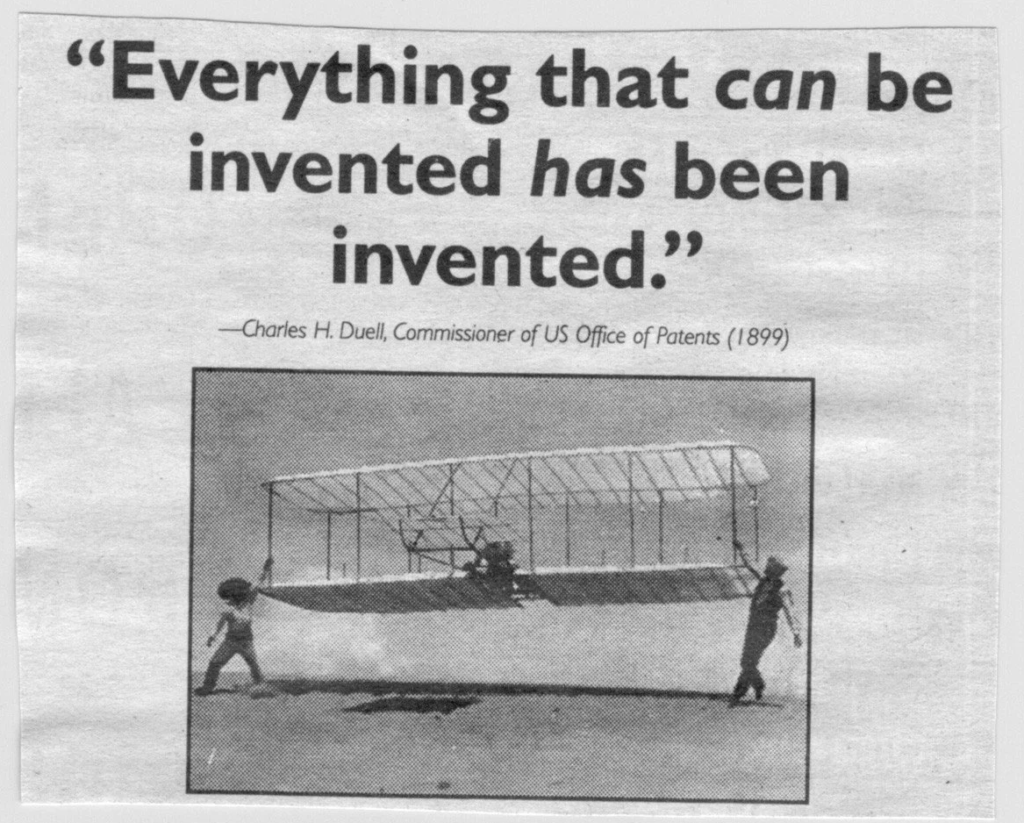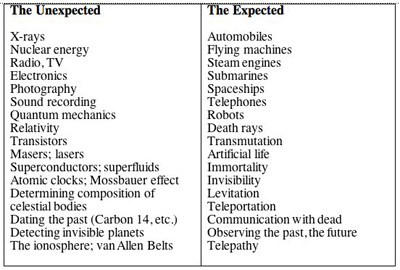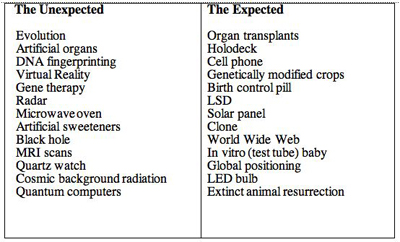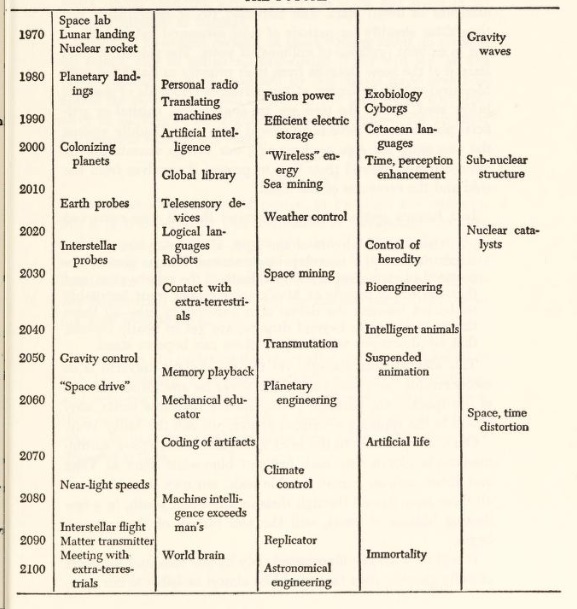Arthur C. Clarke in his Profiles of the Future categorized some inventions based on failure of imagination criterion: essentially whether these inventions were expected or unexpected by the scientific community in the past.
One of them is obviously the invention of heavier-than-air aircrafts, with the classic quote by Charles H. Duell who was the Commissioner of US patent office:
"Everything that can be invented has been invented"
This was in 1899, 4 years before the first flight of Wright brothers.

Undeniably the Universe surprised scientists many more times in the past - Arthur Clarke compiled a table of such technologies, using the “perplex the ancient” test Kevin Kelly talks about:
He [Clarke] asked himself if a brilliant inventor in the past like Benjamin Franklin or Leonardo DaVinci were to encounter this modern invention would they be completely confounded and perplexed, or would they grasp its basic function and workings? Although they probably could not understand how teleportation works (we don’t either!), they would grasp the basic idea.

Similarly, 50 years later, using the same method, aforementioned Kevin Kelly created his own table of "the unexpected vs. the expected".

Kelly makes a good point here that the "expected" technologies were those that can be visualized which is not surprising as the world imagination comes from imago, "an image, a likeness":
Mulling over the two lists, I think what makes an invention “expected” is if it has a good analogy to some commonplace activity or fantasy that we can visualize right now. Danny Hillis, the inventor of the hard-to-imagine parallel super-computer, first brought to my attention how important it was to be able to visualize – with a picture in our mind – a future innovation. Radar, black holes, atomic power, quantum computers all operated with invisible forces that make seeing them hard.
If true, this insight would point to a prediction: that the most unexpected inventions in the future will be based on forces that are still invisible now (quantum, atomic, radio), or wholly new forces that are invisible to the common person. On the other hand, inventions that rely on functions we can visualize – like swallowing a pill – won’t surprise us. There’s almost nothing that a pill can do, including making us invisible, that would surprise us. Conversely, there is probably nothing that quantum computation will do that won’t perplex us.
Clarke didn't stop there, with just the list of past technologies; no, he was way bolder and went one step further, creating a list of expected future technologies that would become reality between 1970 to 2100:

World brain, immortality, matter transmitter, replicator - he viewed the possibility that these would be real one day all the way back in the 1960s - and this was the expected...
In today's zeitgeist, it feels like only the technologies from the second column are expected (those are related to the world of bits), with some of them already invented like global library or translating machines. It feels like the rest of the columns have been made impossible, it feels like we cannot imagine them any longer.
Anyway - when I hear from other people that we live in the developed world or that physics is over, I just think to myself that some people simply need to look more into the mirror - what is Life bro? Of course we are not developed, of course physics is not over.
Atoms are way freer and stranger than we can imagine.

